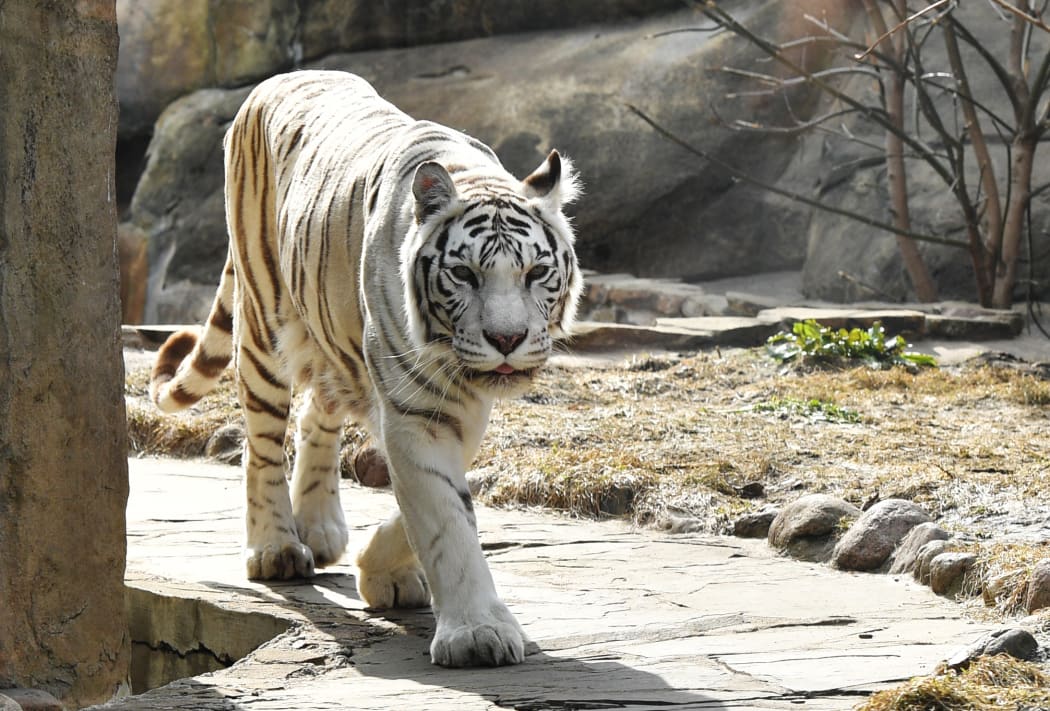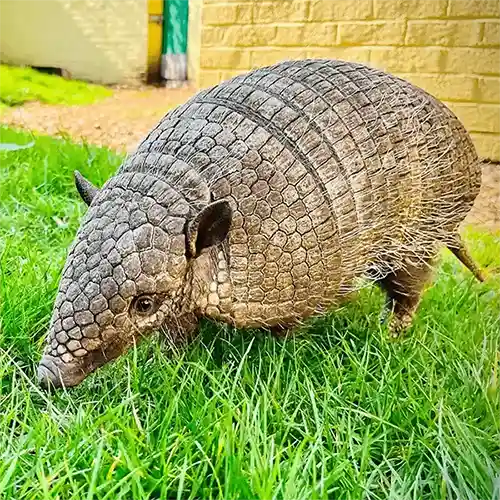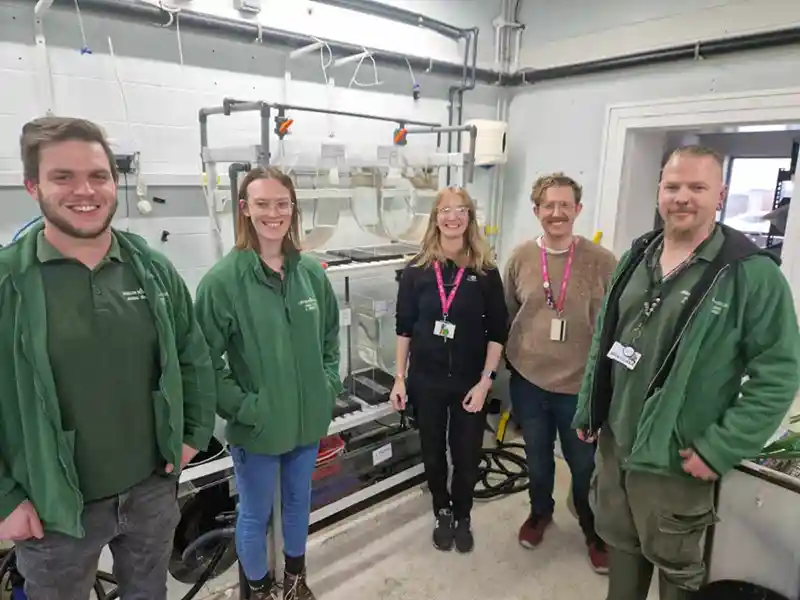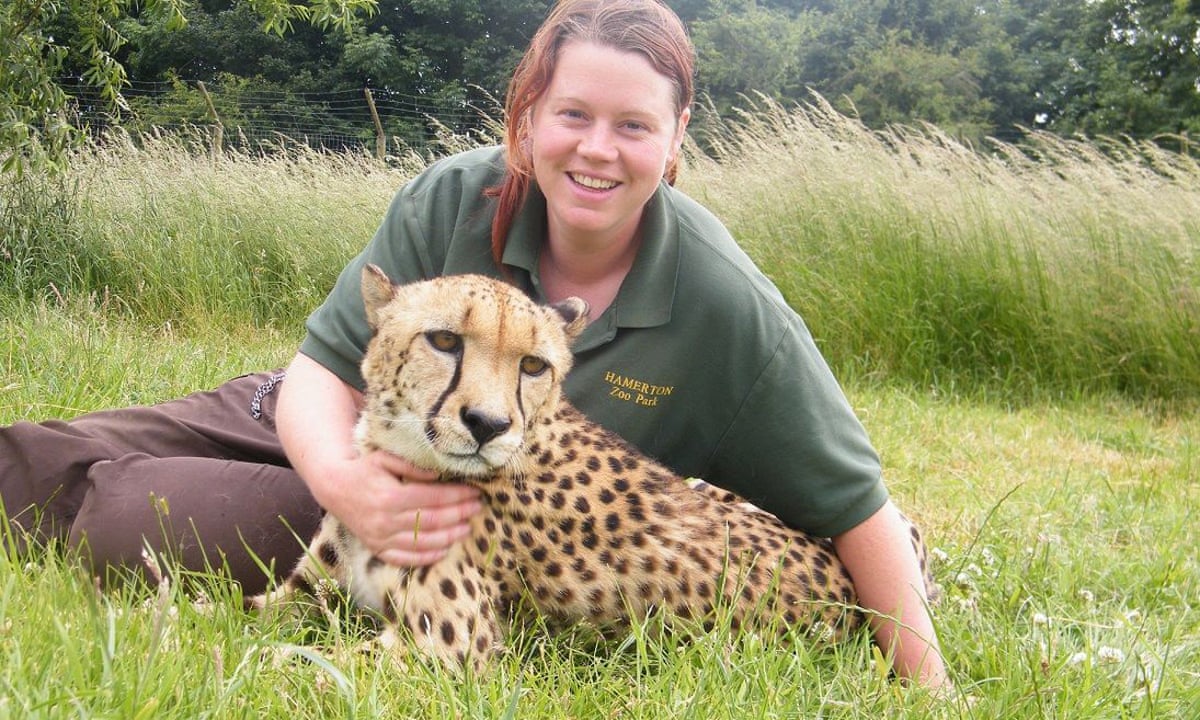Cindy Lind

Cindy Lind
- ,
- IT Administrator
- Członek od: 22 Feb 2025
How To Become A Zoo Keeper?
"The greatness of a nation and its ethical progress can be judged by the way its animals are dealt with." - Mahatma Gandhi
Do you love animals and imagine working in a zoo? Zoo keepers are key in protecting wildlife and caring for animals. At locations like the Zoological Society of London (ZSL), over 20,000 animals get the care they need from specialists.

To become a zoo keeper, you need effort, education, and a love for animals. This job is amazing, letting you work with lots of species and aid with essential conservation work. If you're into wildlife or animal welfare, zookeeping might be best for you.
Starting your zoo keeper profession means discovering what's required. This guide will cover education, experience, and more. It's all you need to know to begin a fulfilling zookeeping profession.
Comprehending the Role of a Zookeeper
Exploring what a zookeeper does reveals a function filled with challenges and rewards. They focus on animal welfare and preservation. Zookeepers strive to keep animals healthy and happy in their care.
Daily Responsibilities and Tasks
A zookeeper's day is filled with important tasks:
- Preparing meals that satisfy each animal's nutritional requirements
- Cleaning enclosures to keep them tidy and safe
- Supervising animal health and behaviour
- Offering medications and treatments as required
- Producing activities to keep animals psychologically sharp
Working Environment and Conditions
Zookeepers work outside in all sort of weather. They handle both indoor and outdoor areas. The job needs being fit and able to manage the needs of taking care of animals.
"Being a zookeeper is more than a job - it's an enthusiastic dedication to animal care and preservation."
Kinds of Animals and Specialisations
Zookeepers can specialise in lots of animal groups:
- Primates
- Big cats
- Marine mammals
- Reptiles
- Birds
Your role might include working with 2-5 different animal types. This needs a lot of knowledge and the ability to adapt.
Important Skills and Personal Qualities for Zoo Keeping
To be a top zookeeper, you need more than simply a love for animals. Your task will be tough and require you to handle animals and people well. You'll also need to understand animal behaviour.
What zoos try to find in people consists of:
- Exceptional persistence and psychological strength
- Strong fitness and endurance
- Keen observation abilities
- Capability to stay calm under pressure
- High level of compassion towards animals
Getting hands-on experience is essential to mastering this function. You'll require to show:
- Advanced understanding of animal care methods
- in animal handling and security protocols
- Reliable communication with both animals and human visitors
"A terrific zookeeper connects science, empathy, and preservation in every interaction with animals."
You ought to know about animal nutrition, behaviour, and standard vet care. Many zookeepers learn through training, volunteering, and continuous knowing.
Zookeeper work is not just a task. It's a huge dedication to teaching about wildlife and helping preservation. Your enthusiasm and effort will make you stand out in this satisfying career.
How to Become a Zoo Keeper
Starting a profession as a zookeeper needs careful preparation and education. You must initially understand the academic needs and training paths. These will turn your love for animals into a task.
Educational Requirements
To be a terrific zookeeper, you need a strong academic base. Most tasks try to find certain certifications:
- At least 5 GCSEs at grade 4 or above, consisting of English, maths, and science
- A levels or college qualifications
- A college degree in biology or animal science
- Level 3 Diploma in Animal Management
Necessary Certifications
Getting unique certifications can actually assist you in your zookeeper profession. Important ones include:
- Diploma in Management of Zoo and Aquarium Animals (DMZAA)
- Zookeeping Level 3 Diploma (RQF)
- Animal dealing with certificates
- Emergency treatment qualifications
Training Programs and Apprenticeships
Getting hands-on experience is key in zookeeper training. Lots of places use terrific possibilities:
- Unpaid apprenticeships at wildlife parks
- Internship programmes at well-known zoos
- Practical training at places like Colchester Zoo and Dartmoor Zoo
- Offering to gain real-world skills
Pro suggestion: Create a detailed portfolio to show your animal care abilities. It will assist you in job applications.
Structure Relevant Experience in Animal Care
Acquiring hands-on experience is essential for those wanting to be zookeepers. The job is very competitive. So, it's important to begin developing a strong base in animal care.
Your journey begins with finding ways to work directly with animals. This is a strategic step.

"Experience is the very best instructor in animal care" - Wildlife Conservation Experts
Here work ways to get experience dealing with animals:

- Volunteer at regional animal shelters to establish basic animal handling abilities
- Look for internships at wildlife rehab centres
- Check out part-time positions at veterinary centers
- Contact your local zoo for possible volunteer chances
Offering is an excellent way to discover animal behaviour and care. Many zoos and animal shelters are trying to find people who wish to learn. These places provide great opportunities to get hands-on experience and reveal your commitment to animal welfare.
Here are some pointers to make the most of your experience:
- Keep a record of your abilities and interactions
- Get in touch with professionals in animal care
- Request referrals and recommendation letters
- Stay relentless and reveal your real passion
Keep in mind, useful experience makes you stand apart in the zookeeping world. Each time you work with animals, you find out more. This increases your possibilities of getting a job in animal care.
Career Pathways and Professional Development
Starting a career as a zookeeper is amazing. It provides lots of possibilities to grow and specialise. Your journey begins with understanding the different paths in this field.

Entry-Level Positions
Entry-level tasks in zookeeping are an excellent start. They offer you hands-on experience. Zoos search for candidates with:
- Level 2 Diploma in Animal Care (minimum certification)
- GCSEs in English and a scientific topic
- Volunteer experience at animal shelters or farms
Profession Progression Opportunities
As you acquire experience, your profession can grow. You can go up to:
- Junior Keeper
- Senior Keeper
- Team Leader
- Professional Roles
"Continuous knowing and useful experience are crucial to advancing in your zookeeping career."
Specialised Roles
You can likewise pick special locations like:
- Conservation reproducing programs
- Animal training
- Wildlife research
- Educational outreach
About 25% of zookeepers get advanced degrees in zoology or animal preservation. Getting Level 4 certifications can boost your chances for senior functions and research study.
Working Hours and Physical Demands
Becoming a zookeeper means you'll work more than simply routine hours. You'll face hard physical obstacles and need to be versatile, consisting of weekends and holidays. Zoos are open every day, so you'll typically work when others relax.
"Zoo keeping is not a common 9-to-5 job-- it's a way of life of devoted animal care and dedication."
This job is physically demanding. You'll work outside in any weather condition, raising heavy products over 50 pounds. Your tasks may consist of:

- Early early morning feeding schedules
- Cleaning up animal enclosures
- Preparing specialised diet plans
- Carrying out health checks
- Keeping intricate environments
Shifts can start as early as 5 AM and go late into the night. You'll be on your feet most of the time, moving in between animal zones. Weekends and holidays become part of the job, requiring great deals of endurance and dedication.
Despite the difficulties, this job has great rewards. You'll grow strong, both physically and mentally. You'll also make remarkable connections with incredible animals.
Health and Safety Considerations
Being a zookeeper includes its own set of obstacles. It's crucial to understand how to keep both animals and staff safe. This means following stringent health and wellness rules.
Zookeepers deal with a special environment where safety is crucial. Research studies reveal that health and wellness are now as crucial as the zoo's primary work.

Risk Management Strategies
There are several ways to handle threats in zoos:
- Daily checks of animal enclosures for threats
- Counting animals at the start and end of shifts
- Enjoying how visitors act near animals
- Being ready for emergency situations
Animal Handling Safety Protocols
Knowing which animals are most dangerous is vital. Huge animals like rhinos can be extremely dangerous. There have been cases where zookeepers got seriously harmed.
Security isn't almost wearing equipment - it's about knowing animal behaviour and staying alert.
Personal Protective Equipment
Zookeepers require to use the right equipment, consisting of:
- Special gloves for dealing with animals
- Strong shoes for grip and safety
- Clothes that protects against germs
Getting vaccinated against diseases like hepatitis B and rabies is likewise crucial. It assists keep zookeepers healthy in their tough job.
Income Expectations and Job Market
Thinking about a profession in zoo keeping? It's crucial to know about salaries and the task market. The field is growing, with more chances in the UK.
Let's look at what zoo keepers can earn at different stages:
- Entry-level zookeepers start at about ₤ 14,000 a year
- Certified ones make between ₤ 16,000 and ₤ 22,000
- Senior zookeepers can make up to ₤ 30,000 or zoo more
The job outlook for zoo keepers is good. The sector is anticipated to grow by 5% in the UK by 2029. This means around 3,910 new tasks will be readily available.
"The Association of Zoos and Aquariums supports professional growth for zoo keepers," a report says.
Incomes differ based upon a number of things:
- Experience level
- Expertise
- Where you work
- The zoo's size and type
While the pay might not be high, the pleasure of working with animals is valuable. The average salary is around ₤ 17,000. However, total earnings can be in between ₤ 13,000 and ₤ 27,000 a year.
Conclusion
Starting a career in animal care is an amazing journey. It needs commitment, zoo passion, and a love for learning. With over 350 zoos and wildlife locations in the UK, there are lots of job opportunities. You'll get to deal with fantastic animals and assist safeguard wildlife.
To be a zoo keeper, you need more than just love for animals. You need to have a mutual understanding of biology, have the ability to communicate well, and always want to find out more. You'll gain hands-on experience, find out about animal welfare, and develop a deep respect for nature. About 3,000 individuals in the UK have discovered fulfilling careers in this field.
Your success in zoo keeping comes from mixing science with a love for animals. Whether you're interested in mammals, birds, or marine life, this job lets you help with conservation. Every day will bring brand-new challenges and discovering opportunities that will enhance your skills and knowledge.
If you like animals and want to help safeguard wildlife, zoo keeping might be for you. Take on the obstacle, remain curious, and turn your passion for animals into a rewarding profession.
Detale
| Płeć | - |
| Wynagrodzenie netto | 18 - 76 |
| Adres | 2010 |

